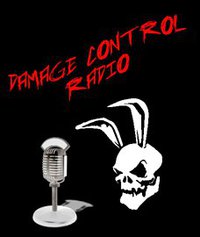radio press
RADIO PRESS PASS INFO
Many freelance writers, freelance photographers and new journalists simply don’t know where to begin when it comes to obtaining press passes to an event like a concert, show or convention.
But fortunately, the process of getting a press pass for an event or concert is fairly simple if the freelancer or journalist knows where to begin.
Misconceptions About Getting a Press Pass, Press Credentials
Many less experienced freelancers and journalists mistakenly believe that they can simply show up to an event and gain press access, as long as they have a business card or press I.D. issued by their own media organization or publication.
For large, non-ticketed events like a festival, this can sometimes be effective, but for ticketed events like concerts, shows and anywhere else that has limited access to the public, journalists must apply for organizer-issued press passes well in advance.
So what are those laminated press I.D. cards (issued by one’s publication, television or radio station) good for? Press I.D.s are helpful for identifying oneself as a member of the press to the general public, like at the scene of a house fire, community event or other smaller, localized happenings.
Who Should a Journalist Call to Get a Press Pass to Cover a Concert, Sporting Event or Show?
The first step to obtaining a press pass that will allow a freelance writer, photographer, videographer or other journalist access to a ticketed event like a concert, convention or show involves contacting the organizers 4 to 6 weeks in advance.
In the case of a concert, the record company typically handles media requests. A visit to the record company’s website is typically all that’s needed to locate the contact information for the record company’s media relations department.
For festival-type concerts featuring multiple artists, the freelancer should contact the radio station, organization or other group that’s organizing the concert. When in doubt, a visit to the event website will typically turn up some leads on who to contact for press inquiries.
The same goes for conventions and shows; journalists and freelancers should contact the show or convention organizers. Valuable information is often found via the event website. When no press contact information is listed, it’s best to call the main number for the event organizer to ask for the individual handling media relations for the event in question.
Notably, public relations firms often oversee media relations — including the distribution of press passes — for many larger events. So it’s not at all uncommon to be referred to a P.R. firm when cold-calling for media relations contacts.
How Does a Freelancer, Photographer or Journalist Actually Get Press Passes for an Event?
Once the organizers of an event or P.R. Firm handling media requests for an event are contacted, the freelancer or journalist must send in a formal written request for press credentials on the media organization’s letter head.
It’s vital for the freelancer or journalist to mention their readership/viewership/listenership information, particularly in cases where a limited number of press passes will be issued. Many record companies limit press access to concerts, and only the journalists with the greatest reach will receive press passes.
It’s also important to detail the nature of press access required. A photographer’s press pass to a concert will typically be good for the first 1 to 2 minutes of the first 3 to 5 songs; after this, the photographers are usually escorted from the building. A writer’s press pass to a concert will typically afford them access to any designated press tent-type areas, and a ticket to sit in the audience for the entire show.
One-on-one interview requests should also be detailed in the written request.
Press passes are provided to journalists and freelancers in one of two ways. In some cases, the press credentials will be sent via Fed-Ex, usually 24 to 48 hours before the start of the event. In the case of some concerts and other ticketed events, press passes may be left at will call.
When utilizing press passes to cover an event, it’s important to send a copy of all footage or published material to the P.R. Firm or Media Relations staff who handled press access for the event. In cases where a tearsheet or CD of footage/audio is not provided, a journalist risks being blacklisted or sent a bill for the cost of tickets/admission
